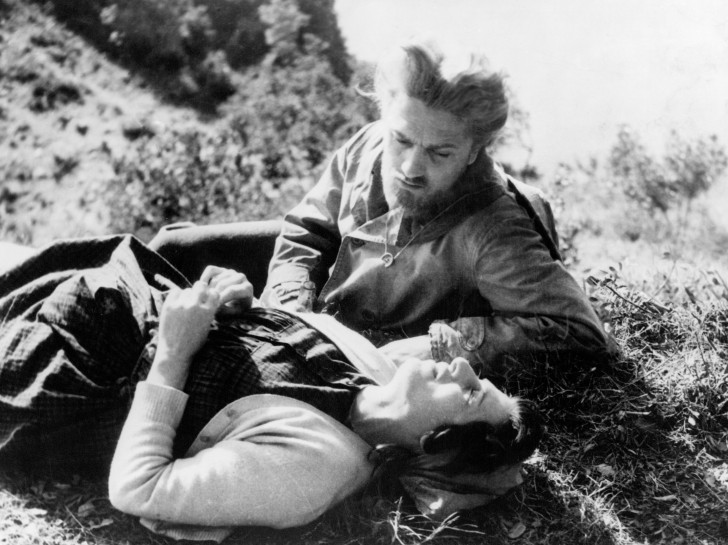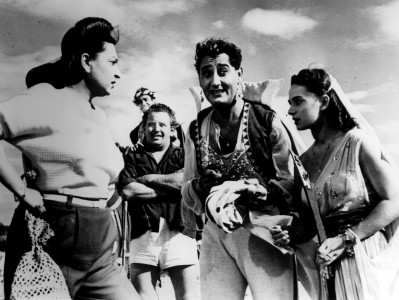
The Miracle
The White Sheik
Fellini’s third screenwriting collaboration with director Roberto Rossellini was this singular religious featurette, first presented in the bisected L’amore (1948) and later distributed as part of the anthology film The Ways of Love (1950) alongside shorts by Jean Renoir and Marcel Pagnol. More so than any of Fellini’s vehicles for Mastroianni or Masina, The Miracle is a one-actor showcase, shining the spotlight on Anna Magnani for the entirety of its brief runtime as her character cycles through a full spectrum of emotions between exaltation and despair. The story concerns a peasant who believes she has spotted Saint Joseph on a rocky hillside; in her swell of religious ecstasy, she confronts the man (Fellini himself in a sly, non-verbal performance) and showers him with compliments, only to later find herself pregnant with his child. Dismissed by her community as a fanatic and eventually harassed, she opts to bear the child anyway, believing she has been blessed by a holy spirit. Rossellini treats this larger-than-life tale of obsessive devotion and community backlash with an indirectness and subtlety that lend it a quiet staying power—an approach seemingly quite distinct from that which Fellini might have taken as director.
In his first solo directorial outing, Fellini burlesques two of the driving forces of his early life—the publishing industry and the Church—by showing each to be fueled by fanatical devotion. Bushy-tailed newlyweds Ivan (Leopoldo Trieste) and Wanda (Brunella Bovo) pledge allegiance to the Vatican and the fumetti (romantic picture book), respectively, and when they arrive in Rome to consummate their marriage before the Pope, these separate pursuits pull them apart over the course of a long and circuitous day punctuated by screwball turns of fate. Skirting her husband’s packed schedule of family visits and opera shows, Wanda retires to the office of her favorite photo-strip in hopes of laying eyes on her beloved Fernando Rivoli (Alberto Sordi), the glowing face behind the Orientalist hero, The White Sheik. From there, Fellini contrasts Wanda’s mad pursuit of her idol, which takes her to the beachfront set of the actor’s latest adventure yarn, with Ivan’s farcical attempts to simultaneously track down his wife and invent excuses about her whereabouts to his relations. The White Sheik announces many of Fellini’s major themes and visual preoccupations in a clever, concise package that would go on to influence a number of Hollywood comedies, from Gene Wilder’s The World’s Greatest Lover (1977) to Woody Allen’s The Purple Rose of Cairo (1985).









































